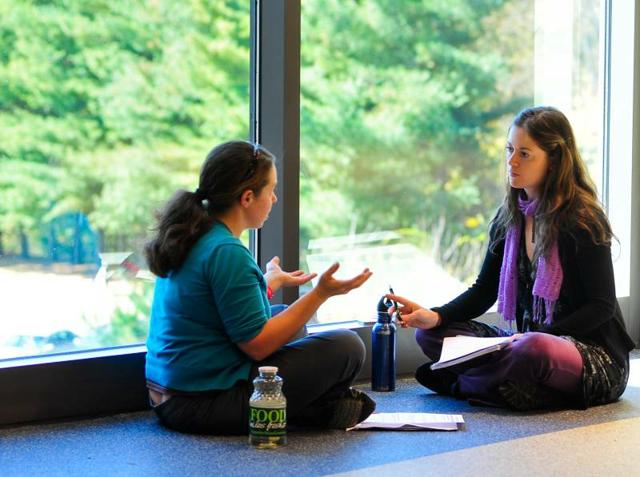Katie Souris, a UNCA graduate, was present at the first meeting of the Asheville Buncombe Food Policy Council. “I was there representing my own passion for food as a gardener, Type 1 diabetic and chronic eater,” Souris says. “I saw first hand the excitement around taking control of our food future and the passion for nourishing the land and people of our community." This is Souris’ take.
Calling All Eaters
Living with food security leads to more confidence, suggests data from the newly formed Asheville-Buncombe Food Policy Council. The ABFPC comes out of a need to address food security, affordability, accessibility and quality both in health and environmental standards in our community.
Cheri Torres, the facilitator for the discussion, called food a “central node” within our society, affecting every facet of our lives. The council was planted by a group of dedicated foodies and policy junkies — and it's already shooting tendrils into new territories, thanks to the many community members who attended the inaugural discussion.
Visions of our area's food future sparked more than three hours of conversation and imaginative illustrating in the meeting room at the new Wilma M. Sherrill Center at UNCA. I found myself actively participating in the discussion within minutes of abandoning the cheese table to sit down and watch a presentation. Suddenly, the nearly 100 of us — a group composed of students, nonprofit workers, city leaders and passionate individuals of various affiliations and backgrounds — became the presentation. The one-on-one and small-group conversations facilitated a supportive arena to voice our strengths as a community; short- and long-term goals and the first steps we want to take towards an abundant food future.
In WNC we already have a head-start on solving the problem of food insecurity. We have access to verdant farmland, which affords the opportunity to boost our local economy by providing jobs to the unemployed through farm work. And, as an area that boasts individuals of diverse backgrounds (culturally, economically and otherwise), we bring a vast breadth of knowledge to the table. Most importantly, we live in a community that is proud to define itself through its passion for self-work. The popular slogan for the ever-blossoming local movement, “put your money where your heart is,” speaks to the affinity locals feel for their mountain home.
The local buzz
The "L” word (we mean local) has been buzzing around area cafés and markets for some time now. Businesses promote themselves as “locally owned,” farmers market their produce with ASAP’s “Appalachian Grown” label and “locavores” grill the meat-market staff on where the ground chuck, trout jerky and applewood-smoked bacon comes from. It’s a powerful trend the Food Policy Council is poised to support.
But for struggling families, the local-food movement is largely unreachable, due to its high costs, especially when compared to the big-industry products and processed, packaged foods. Additionally, many communities below or near the poverty line exist within “food deserts,” a term for places without grocery stores. Often, people who struggle to afford food also cannot afford personal vehicles and rely on public transit, biking or walking to get to work and stores.
City Council member Gordon Smith, a facilitator at the forum, summed up the broad scope and inclusive nature of the ABFPC: “We have the opportunity to collaborate across sectors in entirely new ways.” Indeed, the first convening identified a need to better serve the under-served communities through outreach to diverse populations. “Whether their expertise was in poverty alleviation, public health, local commerce or sustainability, the participants at the initial convening of the ABFPC found other advocates just as passionate," said Smith.
"They found their voices valued and their time well-spent. At the end of the meeting, everyone walked away knowing they'd just begun something important.”
— Katie Souris is a food policy advocate and a graduate of UNCA who works at Sunny Point, both in the garden and the restaurant. Email her at kjsouris@unca.edu.



Before you comment
The comments section is here to provide a platform for civil dialogue on the issues we face together as a local community. Xpress is committed to offering this platform for all voices, but when the tone of the discussion gets nasty or strays off topic, we believe many people choose not to participate. Xpress editors are determined to moderate comments to ensure a constructive interchange is maintained. All comments judged not to be in keeping with the spirit of civil discourse will be removed and repeat violators will be banned. See here for our terms of service. Thank you for being part of this effort to promote respectful discussion.